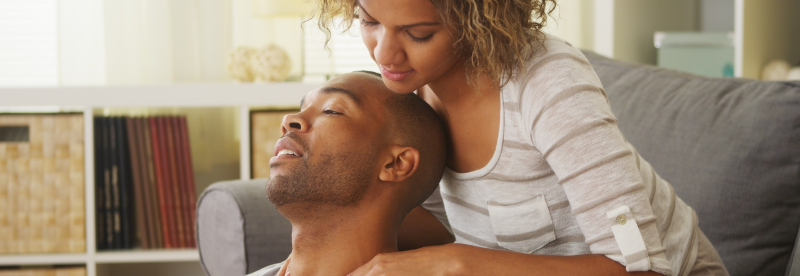Industry
Couples in Conflict, Try This Now

As a therapist I have an aversion to short lists of quick tips, because individuals and their relationships are so complex and idiosyncratic. However, as a busy person, I am always appreciative when an experienced insider can simplify a domain for which I have little time or energy. Drawing on a decade of psychotherapy with couples in crisis, here are five quick – though not easy – ways to respond when you feel stuck in a conflict with your partner.
- Call a timeout
If it works for a toddler, it can work for you. When anger has taken over and your frontal lobe is offline, even the most rational and mature adult will rage or pout like a three year old. The only constructive move at this point is to take a break, let time pass and take some physical space apart. The purpose of a “timeout” is not meant to punish, but to provide a pause that can allow the strongest emotions to pass. This is an opportunity to be curious about what triggered the conflict and why your own emotions were piqued. A timeout could be anything from taking ten deep breaths to having one person leave the house for a while. Either partner should be able to call a “timeout,” and it should not be employed as a power play in an argument (though it is inevitable that someone will want to get in the last word). It is much better to argue often and cool off quickly than to allow explosive rage to become a habit or to allow slow burning resentment to fester.
- Be curious, not furious
Anger is usually a reactive emotion, a defense against some sort of threat, real or imagined. A natural response to having anger directed at you is to become defensive and thus angry yourself. Of course, this leads to a feedback loop, reinforcing the hurt that starts the conflict. If you can quiet your own defensiveness and see anger as a response to vulnerability, you will have a powerful key to understanding yourself and your partner more deeply. Ask your angry self: “What is it that I am really worried about here? Am I hurt because I feel put down, controlled or ignored? What is the real threat?” You can ask these questions of your partner as well, though it will only be effective if asked with an attitude of genuine curiosity, not a mode of cross-examination. When you return to talk after a heated argument, you might each start discussing the vulnerabilities that led to the anger, rather than the nasty things that were said once the anger was triggered.
- Focus on specific behaviors, not personality or intentions
When we are annoyed with our partners it is very tempting to analyze faults in their personality, identify problems with their upbringing, or even try to diagnose them. Whatever grains of truth lie in these insights, it is almost never helpful to share ideas about your partner’s personality when you are in active conflict. Using labels or analyzing someone’s character when you are angry is usually just a veiled way of attacking them. Nearly all of us become defensive when someone seems to be judging our whole personality, but we can usually cope with hearing about a specific action or incident in which we screwed up or hurt someone unwittingly. For example, imagine your response to the following: “You are so self-centered” versus “When you don’t ask me how my day was, it makes me feel like you don’t care.” Excerpt from PsychCentral, read the full article. Relationship support from Health Assured Presenting issues related to ‘Relationships’ account for around 11% of contacts into our services. Our counsellors have vast experience in supporting individuals who are experiencing Relationship difficulties and recognise the impacts that this can have in other areas of an individual’s personal, social and work life. Detailed below is an example of the counselling support that we provided to a client in order to support her in dealing with relationship difficulties within her marriage. The client was supported through Intervention Focussed Therapy. We have demonstrable experience in supporting individuals experiencing presenting issues related to ‘Relationships’. Across our portfolio of clients, we see the following positive impacts of our counselling support for such presenting issues:
- 50% reduction in levels of anxiety.
- 53% reduction in depression levels.
- 17% reduction in those out of work at the end of therapy.
“The client felt trapped in her marriage of 16 years; she was not sure if she wanted the marriage to continue and whether she loved her husband. There are two children. Client advised that thinking about her marriage was consuming her and affecting her work. By exploring the client's relationship with her husband and interactions with each other, how this has changed and how they each may have changed individually, the client was able to see things from a different perspective and came to realise that what she had learned to accept as a normal situation is not normal. The client said that ‘counselling has made me realise my strengths and has given me the confidence to change the situation when I am ready’.”
Support your employees with an EAP
With a Health Assured Employee Assistance Programme (EAP), we can offer you practical advice and support when it comes to dealing with workplace stress and anxiety issues.
Our EAP service provides guidance and supports your employees with their mental health in the workplace and at home. We can help you create a safe, productive workspace that supports all.


